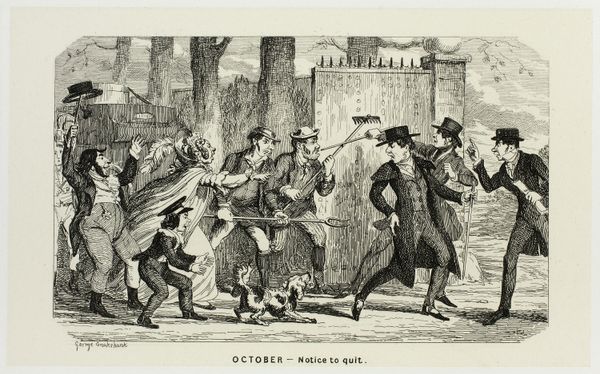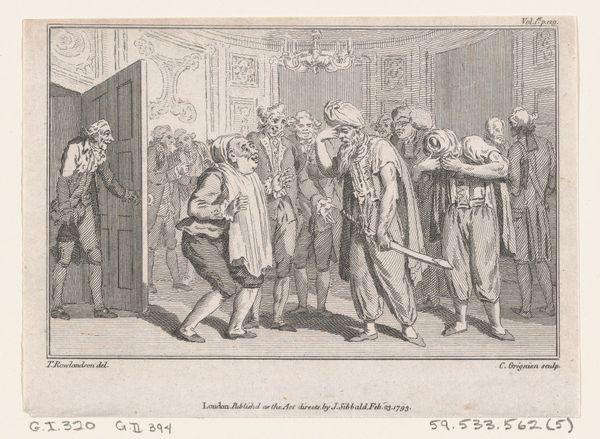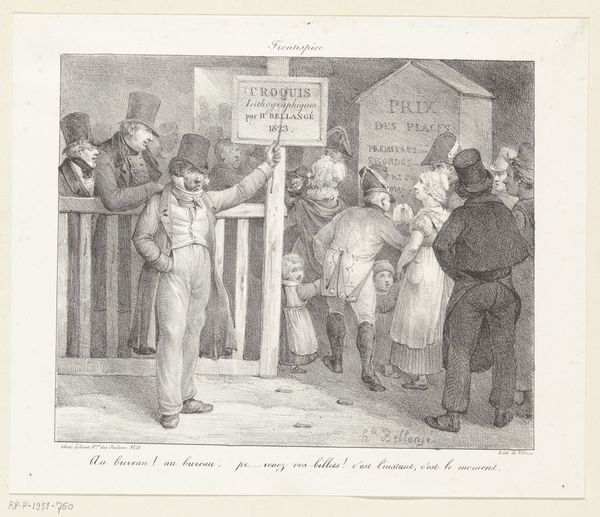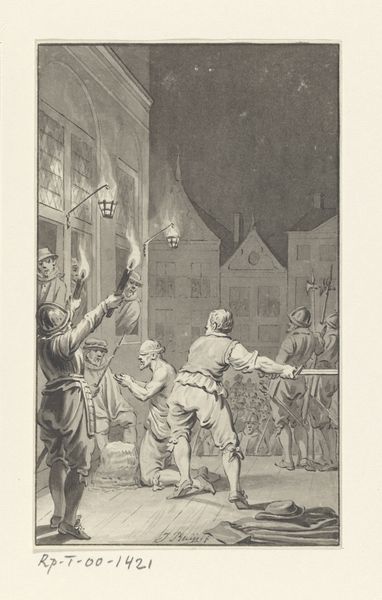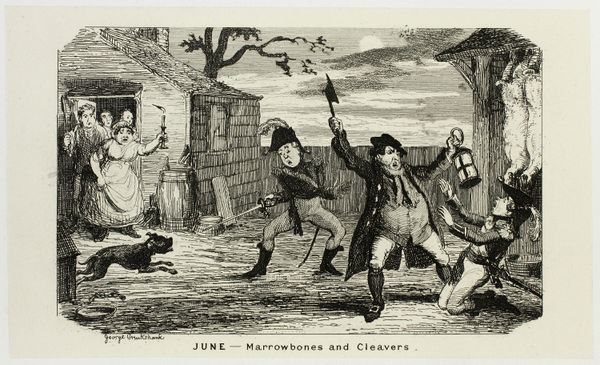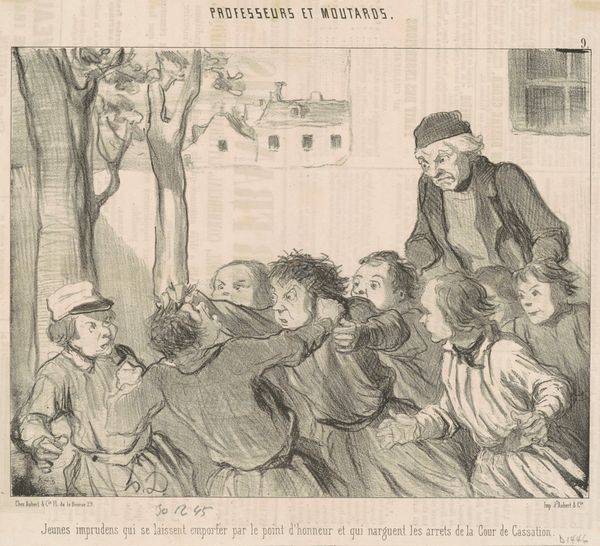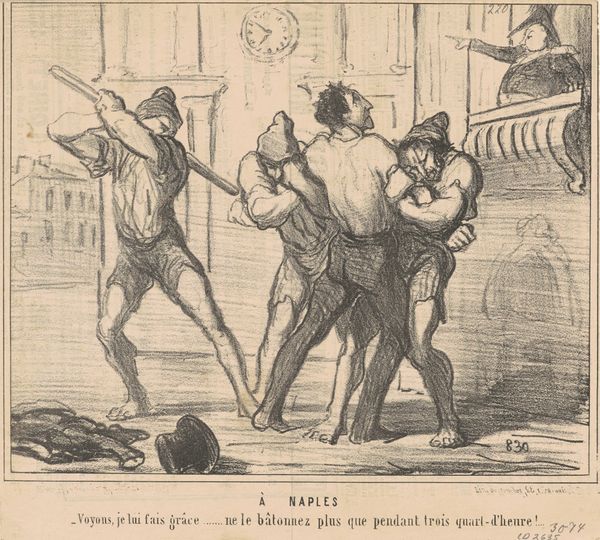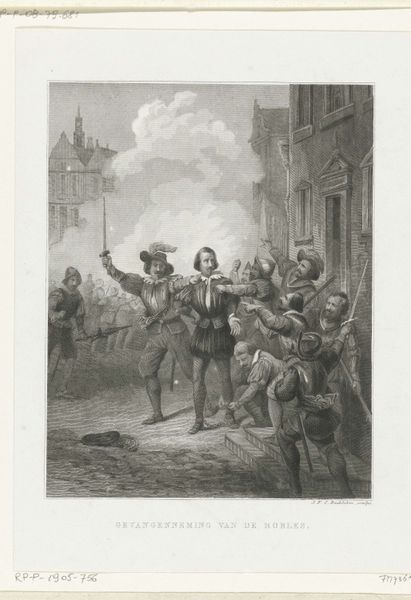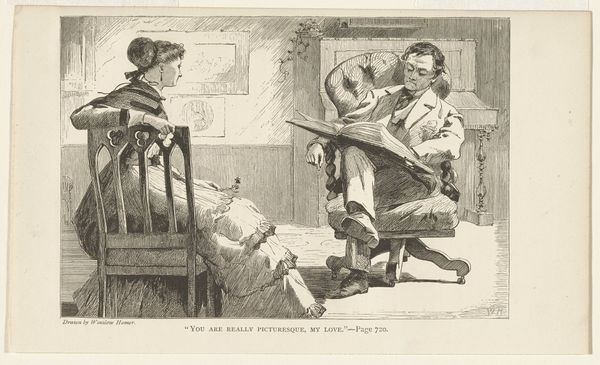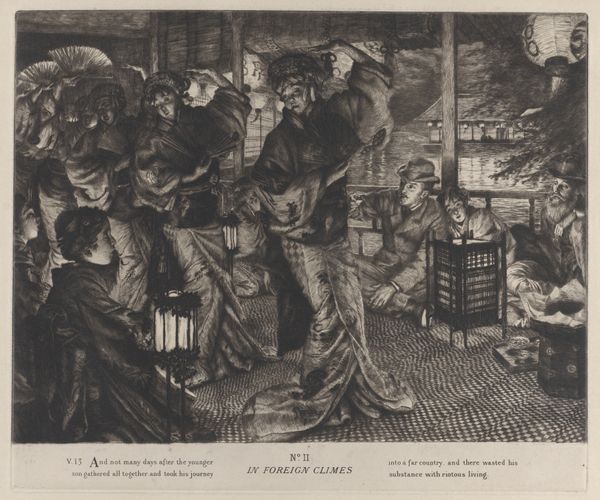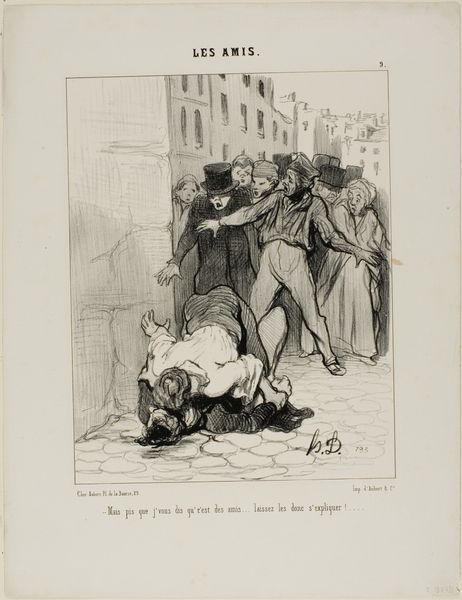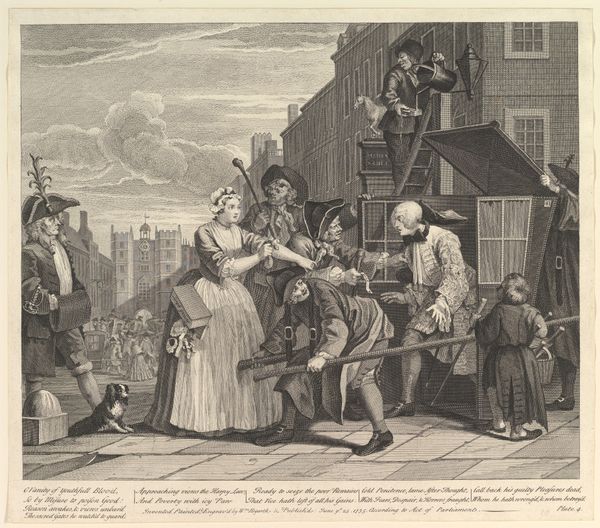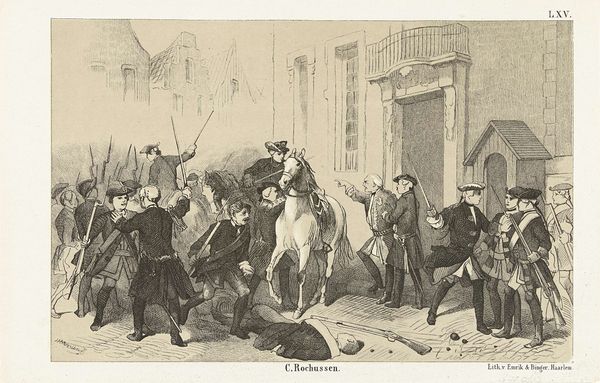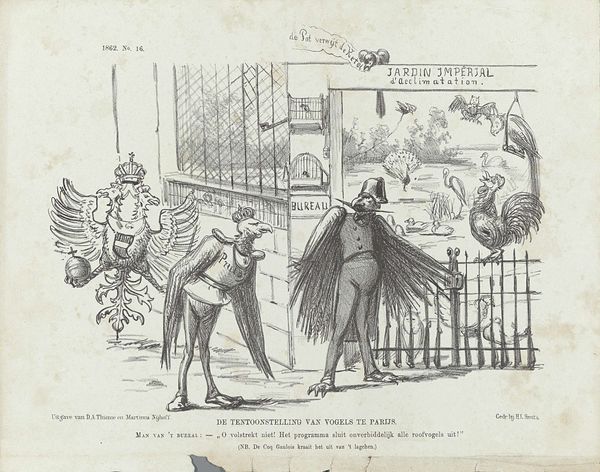
December - "The Winter of Our Discontent" from George Cruikshank's Steel Etchings to The Comic Almanacks: 1835-1853 c. 1839 - 1880
0:00
0:00
drawing, print, etching, paper, engraving
#
drawing
#
narrative-art
# print
#
pen illustration
#
pen sketch
#
etching
#
caricature
#
cartoon sketch
#
paper
#
england
#
cityscape
#
genre-painting
#
engraving
Dimensions: 93 × 156 mm (primary support); 222 × 284 mm (secondary support)
Copyright: Public Domain
George Cruikshank made this etching in the mid-19th century as part of a series of comic almanacs. The medium is steel, a relatively new material at the time, chosen for its durability in printing finely detailed line work and the large editions demanded by a burgeoning reading public. Notice how Cruikshank uses the crisp lines of the etching to render a bustling street scene. The sharp, precise marks describe everything from the cobblestones underfoot to the worried expression of the man being chased by a bailiff. This level of detail wouldn’t have been possible using traditional etching techniques on copper. The choice of steel is also significant in a social sense. It speaks to the industrial revolution and the rise of mass production. The relative ease and cheapness of printing from steel allowed Cruikshank to reach a broad audience, offering his commentary on the social issues of the day to many people. Cruikshank's decision to work with industrial materials reflects a broader trend in artmaking, one that embraces new technologies and ways of engaging with the world. By understanding the materials and making processes of this print, we gain a deeper insight into its historical and social context.
Comments
No comments
Be the first to comment and join the conversation on the ultimate creative platform.
